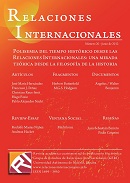Keywords:
progress , moral judgment , Whig historyCopyright (c) 2012 Herbert BUTTERFIELD

This work is licensed under a Creative Commons Attribution-NonCommercial-NoDerivatives 4.0 International License.
Abstract
This selection of chapters offers the reader two central arguments in Herbert Butterfield’s critique of what has been coined “whig history”. He presents whig history as an interpretation of the past as a succession of events that have necessarily lead to the present. Such interpretation, he argues has two problems: 1) It leads the historian to study the past for the sake of the present, which in turn leads to an abridged history, including only those events the historian asseses significant to explain the present; 2) By engaging in historical study with reference to his own set of values, the whig historian is quick to decide which men and parties were right/good and wrong/evil, a consequence that divorces us from the past, for it prevents us from really understanding why people acted the way they did.





